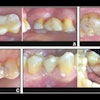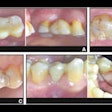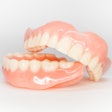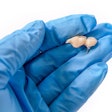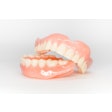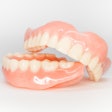Nearly 20 million teeth are extracted each year, leaving scores of people to deal with the psychological effects of a less-than-perfect smile. At the 2008 Academy of General Dentistry (AGD) meeting being held in Orlando, FL, this week, H. Asuman Kiyak, Ph.D., gave a presentation on the psychological issues affecting people who must deal with the loss of a tooth and how this loss can affect their quality of life.
In her talk, "Enhancing the Oral Health and Quality of Life for Partially Edentulous or Fully Edentulous Patients: The Importance of Communication," Dr. Kiyak discussed the post-traumatic effects a patient endures after losing a tooth, according to an AGD press release. She also highlighted ways dentists can communicate with patients to help them cope with tooth loss and understand their options for restoring their smile.
"The major impact of tooth loss is on the appearance and social relations component of quality of life because people cannot change their appearance with missing teeth," Kiyak stated in the press release.
Recent results from a survey distributed to nearly 20,000 AGD members revealed that more than 86% of general dentists reported social embarrassment as one of the biggest problems associated with tooth loss, and that more than half of patients avoid social interaction because of it.
Yet, Kiyak noted that patients can learn how to cope with the loss of a tooth. According to the AGD, Kiyak encourages patients to:
- Weigh their options with the pros and cons for replacement teeth or even endodontic treatment to save a "hopeless" tooth.
- Review videos or still photos of others who have lost teeth and their current teeth status with removable or implant-supported dentures.
- Read testimonials of others who have undergone single, multiple, total tooth loss and replacement of these teeth with removable or implant-supported dentures, how they have coped with each stage, and how they are functioning orally, systemically, and psychologically with these dentures.


